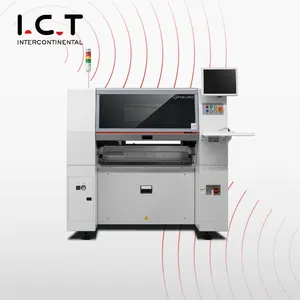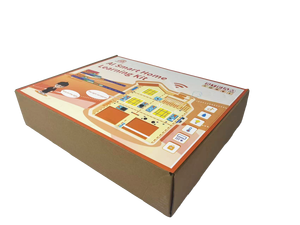Introduction to Electronics Kits for Beginners
Starting a journey into the world of electronics can be both exciting and intimidating for beginners. Electronics kits for beginners provide an excellent gateway into understanding the fundamental concepts of circuitry, components, and electronic theory. With user-friendly components and simplified instructions, these kits are designed to empower novices to learn by doing, paving the way for a deeper appreciation of electronics and technology.
Types of Electronics Kits for Beginners
When exploring electronics kits for beginners, you will encounter a diverse range of options to suit various interests and educational objectives. Here are some primary types:
- Basic Circuit Kits: These kits focus on fundamental electronic components such as resistors, capacitors, diodes, and transistors, allowing beginners to create simple circuits.
- Robotics Kits: These kits combine electronics with mechanical engineering, enabling users to build functioning robots that can perform basic tasks or follow programmed instructions.
- Programming Kits: Designed for those interested in coding, these kits often include microcontrollers like Arduino that facilitate learning programming alongside electronic principles.
- Sensor & IoT Kits: For tech enthusiasts eager to explore the Internet of Things, these kits include sensors that interact with the environment, allowing beginners to create smart devices.
Applications of Electronics Kits for Beginners
The applications of electronics kits for beginners are vast and varied, catering to a range of interests from academic to hobbyist. Here are some notable applications:
- Educational Purposes: Used in schools and workshops, these kits provide hands-on learning experiences that are essential for grasping complex electronic concepts.
- Hobby Projects: Enthusiasts utilize these kits to explore innovative ideas, create DIY projects, and develop personal gadgets that reflect their creativity.
- STEM Activities: They are crucial in promoting STEM (Science, Technology, Engineering, and Mathematics) learning, engaging students in practical applications of theoretical concepts.
- Prototype Development: Aspiring inventors often use these kits to develop prototypes for potential commercial products, allowing them to test ideas before moving to production.
Advantages of Using Electronics Kits for Beginners
Choosing electronics kits for beginners offers numerous advantages that support thorough learning and skill development. Here’s why these kits are worthwhile:
- Hands-On Learning: They provide a tactile learning experience, allowing users to connect theory with practice, which is crucial for maintaining engagement and retention.
- Simplified Learning Curve: The kits are designed with beginner-friendly instructions, making it easier to grasp complex concepts and progress at one's own pace.
- Comprehensive Resources: Many kits come with tutorials, online courses, or community forums, providing additional resources to aid learning and troubleshoot challenges.
- Cost-Effective: Instead of purchasing individual components, beginners can obtain a wealth of resources in one kit, providing great value for the investment made.




























































































































































































